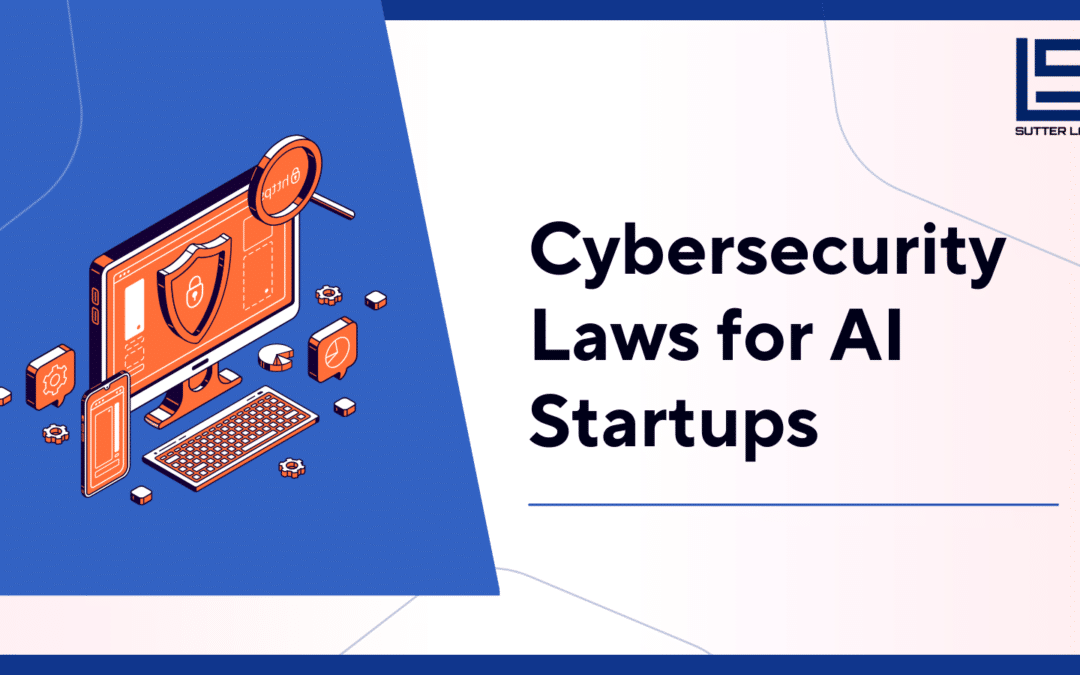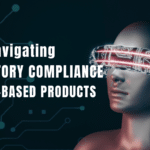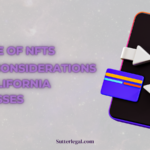Table of Contents
- Understanding the Cybersecurity Legal Framework
- California’s Trailblazing Stance
- AI and Data Privacy – A Double-Edged Sword
- Balancing Innovation with Compliance
- Role of Data Fiduciaries
- Cybersecurity Incidents – The Legal Aftermath
- Conclusion
In the digital era, data is the new gold, and startups, particularly those pivoting around Artificial Intelligence (AI), are the new miners.
The modern economy’s fabric is threaded with data-driven decision-making, and AI startups sit at the heart of this transformative cycle.
However, as these entities innovate and disrupt, they must navigate a complex labyrinth of cybersecurity laws designed to safeguard user data.
This article discusses the gamut of cybersecurity laws relevant to AI startups, specifically addressing the legal landscape in California, home to a host of these cutting-edge enterprises.
Understanding the Cybersecurity Legal Framework
Cybersecurity law in the United States is a patchwork of federal and state regulations. At the federal level, there’s no overarching cybersecurity statute.
Instead, there are sector-specific laws like the Health Insurance Portability and Accountability Act (HIPAA) for healthcare information and the Gramm-Leach-Bliley Act (GLBA) for financial data.
Additionally on the state-level new privacy laws, regulating the usage of AI, continue to emerge.
In January 2023, the National Institute of Standards and Technology issued the AI Risk Management Framework (AI RMF) providing guidance for the usage of AI systems. The framework is intended for voluntary use and there are no penalties for non-compliance.
In October 2023, the Biden Administration released an Executive Order on Safe, Secure, and Trustworthy Development and Use of Artificial Intelligence. It establishes a government-wide effort to guide responsible artificial intelligence (AI) development and deployment through federal agency leadership, regulation of industry, and engagement with international partners. One of the actions directed by the Order is Protecting Americans’ Privacy from the risks posed by AI through different actions.
On the Federal level, the American Data Privacy & Protection Act (ADPPA), contains provisions regarding accountability and fairness of AI algorithms. The ADPPA features AI and privacy-related provisions. The bill imposes limits on personal information collection and usage, requiring that personal data management be only necessary and proportionate for providing products or services.
However, the absence of a unified federal cybersecurity law compels AI startups to be particularly vigilant concerning state-level regulations, which can be more demanding.
California’s Trailblazing Stance
California has emerged as a bellwether in the field of data protection with the California Consumer Privacy Act (CCPA) and the subsequent California Privacy Rights Act (CPRA), which expand the rights of consumers and obligations of businesses.
These laws offer a glimpse into the elaborate stance California takes on protecting consumer data, a beacon indicating the course this field might take nationally.
They apply to all businesses that collect California residents’ personal information, have a certain amount of revenue, or deal in large quantities of personal data. This sphere of influence undoubtedly includes AI startups.
AI and Data Privacy – A Double-Edged Sword
AI tools operate by continuously learning from data. Sometimes the data they use could be personal data, protected under privacy laws. Since AI cannot distinguish personal data from non-personal it could output personal data as to other users or publicly. This would raise a high risk of personal data leaks and could violate privacy laws.
To avoid such leaks, companies should learn how to use them without violating the coming data protection laws. They can adopt the following practices:
- Avoid processing personal data with AI and implement privacy-by-design practices.
- Minimalize data processing by using only the minimum amount of data needed to reach their purpose;
- Obtain the data subject’s consent before processing personal data or make sure you have a legitimate interest in processing that data. (You must know why you need to process personal data with AI tools, explain this to your customers, and get consent.)
- Limit the sharing of personal data to third companies and in particular for marketing purposes.
- Be transparent and disclose to your users in your Privacy Policy that you use AI algorithms to process their data
- Limit the data retention period to the minimum and control how long the AI tools store the data.
- Conduct a data protection risk assessment, please note that using AI to process personal data could fall under the scope of risk assessments.
- Train your employees and contractors and make sure they are familiar with the data protection practices and regulations.
Balancing Innovation with Compliance
An AI startup, while harnessing data for innovation, must concurrently thread the needle of compliance.
This means having robust cybersecurity practices in place that are informed by current legal mandates.
For instance, the CCPA requires reasonable security measures to protect consumers’ personal data, which could translate to encryption, regular security audits, and a clear data breach response strategy.
Role of Data Fiduciaries
With laws like the DPDPA (Data Protection and Digital Information Act) highlighting roles similar to the European model of data controllers, AI startups must consider themselves as data fiduciaries, holding a duty of care over user data.
This involves deploying practices that are transparent, respect user consent, and allow for data access and correction — all underpinned by strong cybersecurity defenses.
Cybersecurity Incidents – The Legal Aftermath
AI startups must be primed for the eventuality of a cybersecurity incident.In California, along with the CCPA/CPRA, businesses also need to heed the state’s data breach notification laws which demand prompt action to inform affected parties and authorities when certain types of personal information are compromised.
Conclusion
In conclusion, AI startups, as custodians of vast quantities of data, bear the weighty responsibility of adopting and maintaining stringent cybersecurity measures.
Through proactive engagement with the existing legal frameworks and a keen eye on the legislative horizon, AI startups can serve as paragons of innovation without sacrificing the sanctity of user data protection.
Contact Sutter Law for any help






